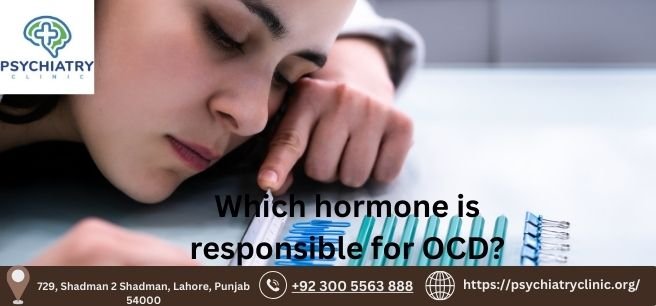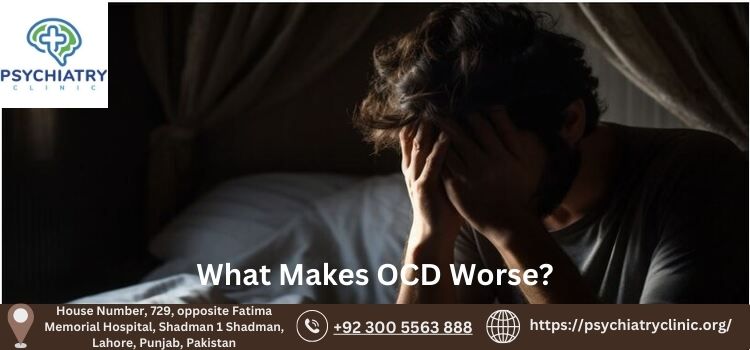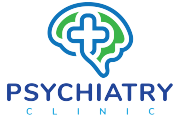Antipsychotic Drugs
Antipsychotic Drugs
When we talk about drugs for mental illnesses, people show their apprehensions. This is especially true for antipsychotic drugs. This results in an obvious delay in initiating the treatment. This kind of behavior is due to a lack of knowledge about antipsychotics. A lot of mistaken beliefs about these drugs. Just remember, the earlier the treatment the better will be the prognosis. Interestingly, a lot of emphases nowadays is on reducing the duration of untreated psychosis. In this blog, we will try to address the possible questions about antipsychotic drugs.What are antipsychotics?
Psychosis is an umbrella term. The common psychotic disorders are schizophrenia, drug-induced psychosis, schizophreniform disorder, post-partum psychosis, etc. One thing common in psychosis is the disturbance in reality. The patient can have symptoms like delusions and hallucinations. These drugs are treatments for this condition. There are two main groups of antipsychotic drugs. The basis for classification are older vs. newer, mechanism of action, and side effect profile. Typical antipsychotics; includes haloperidol, fluphenazine, and chlorpromazine. Atypical antipsychotics; includes risperidone, olanzapine, quetiapine, aripiprazole, etc. As far as their therapeutic efficacy is concerned, antipsychotic drugs are almost equally effective. So, the choice of drug usually depends upon factors other factors such as the age of the patient, body weight, or other medical illnesses.How do antipsychotic drugs work?
The role of Certain chemicals in the etiology of schizophrenia is reality n0w. Two of these are extensively studied and their relationship with schizophrenia is proven fact. These are dopamine and serotonin. More importantly, their level increases in different areas of the brain, especially the limbic system. Typical antipsychotics are dopamine antagonists. This means that they decrease the level of dopamine in different brain areas. Instead atypical antipsychotics have more affinity for serotonin receptors. Hence, they decrease the level of serotonin. In this way, they result in the improvement of symptoms of schizophrenia.Classification of Antipsychotics Medicine
- There are two main classes of these medicines
- Typical antipsychotics
- Atypical antipsychotics
Typical Antipsychotics
We also call them first-generation antipsychotics. We can say they are older. The first typical antipsychotic, chlorpromazine, was invented in the 1950s. They have a very strong affinity for D2 dopamine receptors. Here they are strong antagonists Common names- Haloperidol
- Chlorpromazine
- Fluphenazine
- They are highly effective. Even the newest antipsychotics are more effective than these medicines.
- They are very cheap. In Pakistan, one tablet of haloperidol costs Rs 1 to 3 rupees.
- There are years of experience with these antipsychotics. And they are safe
- They are also safe for other medical conditions such as diabetes, and delirium. We can use them with relatively more confidence in pregnancy
- Their side effect profile limits the use of these drugs
- Common side effects are muscle rigidity, resting tremors, drooling of saliva, etc. These side effects are reversible.
- Tardive dyskinesia is a rare side effect of typical antipsychotics. This is a movement disorder and it can appear after long-term use of typical antipsychotics
- Hyperprolactinemia is also a disturbing but reversible condition. It can result in menstrual irregularities and secretions from best. In males, it can cause sexual dysfunctions
Atypical Antipsychotics
These are second-generation antipsychotics. They have a weak affinity for D2 dopamine receptors. As result, they have fewer side effects mentioned above. The strong antagonist of serotonin receptor number 2 (5HT2) is the main feature Common Names- Risperidone
- Olanzapine
- Quetiapine
- Clozapine
- Aripiprazole
- Ziprasidone
- They are a very effective treatment for schizophrenia
- In addition to schizophrenia, they use in other conditions as well. One of the olanzapine uses is a mood stabilizing effect in bipolar illness. Other risperidone uses are augmentation effect in OCD
- They are less likely to cause extrapyramidal side effects
- These drugs are relatively safe in overdose
- One of the aripiprazole uses is to revert the weight gain
- These drugs can cause significant weight gain, except aripiprazole, amisulpride
- Derangement in lipid profile is a common side effect
- Postural hypotension
- Note; that not all drugs have similar side effects. Every drug has some unique properties.
How long antipsychotic drugs should be taken for schizophrenia?
There is no doubt that these medicines should be taken for a longer period. For example in the first episode of schizophrenia, they are to be taken for one to two years, and these two years will be calculated after the remission of symptoms. The duration of treatment may vary according to different factors. A few of these factors are below The total duration of illness; if the patient is experiencing schizophrenia symptoms for a longer period, say ten years then it is important to continue antipsychotic drugs after two years. The severity of symptoms; if the patient’s illness is severe enough to cause risks such as injurious behavior toward self or others then continue the medicine for a longer period Response to treatment; The patient did not respond to one or two medicines. Or response appears at higher doses This also necessitates the continuation of medicine. The presence of factors that can cause a relapse of symptoms, etc.; some psychosocial factors increase the chances of relapse of symptoms. If these factors are prominent in a patient’s life then the duration of medication use may be extended. One of these factors is highly expressed emotions in the family. If the patient is living in a family with prominent high expressed emotions, the chances of relapse are doubled.what will happen if I stop medicine?
We as psychiatrists face a behavior pattern that is frequent but needs to be addressed. People usually stop antipsychotic drugs when symptoms started improving or when remission is achieved. This results in a vicious circle of remission-stopping medicine-relapse-starting medicine again-remission…..till a time comes when complete remission is difficult to achieve even at a higher dose of antipsychotic drugs. This reappearance of symptoms may occur immediately after stopping the medicine or may be delayed for months. Each new relapse results in a decline in cognitive skills. As higher doses may be required when symptoms relapse, the patient may have to face more side effects of drugs.Are antipsychotic drugs addictive?
Again an important question! Remember antipsychotic drugs are not addictive. For a drug to be addictive there are certain characteristics like it should have euphoric effects and with time dose of the drug need to be increased to achieve to same euphoric effect. In the case of antipsychotic drugs, there is no euphoria at all; rather medicine can have uncomfortable feelings. And with time dose of medicine is usually reduced.What are the side effects of medicine?
Here we will discuss important and specific side effects only. Only a percentage of patients experience these effects not all patients. Typical antipsychotic drugs (like haloperidol) are associated with extrapyramidal side effects (EPS). These are discussed here. Acute Dystonia; this condition usually occurs in teenage males. There is a painful spasm in a single muscle group such as muscles of the head and neck. It is an acute condition causing significant distress. Fortunately, it is easily reversible by the addition of another drug such as procyclidine. Parkinsonism; symptoms of parkinsonism include muscle stiffness and slowness in the whole body, tremors in the hand or face especially during rest, and a mask-like face. Parkinsonism is a neurological disorder and antipsychotic drugs induced Parkinsonism is one of the reversible causes. It can be treated by reducing the dose of antipsychotic drugs or by substituting it with another drug. Sometimes the addition of an anticholinergic drug is also helpful. Akathisia; in this condition patient feels extreme restlessness. He is unable to even sit for a longer period and wanders here and there. It is also a treatable condition in most patients. Tardive dyskinesia; is a chronic, rare, and almost persistent condition. This patient feels dance-like movements in the body especially involving muscles of the hand feet, facial muscles, muscles of the neck, etc. This condition only appears after long-term and irregular use of typical antipsychotic drugs. With the development of typical antipsychotic drugs, this condition is a rare occurrence nowadays. It can be persistent and its treatment is different from other extrapyramidal side effects. So consultation with a psychiatrist is necessary. Atypical antipsychotics are usually free from the above side effects but they can be associated with other kinds of side effects, such as weight gain, increased appetite, and increased blood pressure.What should I do if start gaining weight?
Weight gain and effects related to weight gain are also a reason for noncompliance with treatment. Apart from other factors, the single important factor responsible for this increase in weight is an increase in appetite. Ultimately weight is increased when we eat more. Simple dietary and lifestyle modifications can address the above problem. If this strategy is not successful, then consult your psychiatrist. He can adjust your medicine or add low-dose medicine that can be labeled as an antidote to weight gain.How do improve good compliance with treatment?
There can be different ways. Most important of all is to understand the illness, the role of medicine in illness, and the significance of regular use of medicine. When the symptoms are improved chances of forgetting medicine also increase. This could be due to carelessness. To address this issue consult your psychiatrist to make the regimen simple such as a single daily dose if possible. Another way is to take medicine immediately after a meal, whenever you take your meal say dinner you will spontaneously remember to take medicine.Can I take other medicines while taking antipsychotic drugs?
Although other medicine can be taken along with antipsychotic drugs, this should be done preferably in consultation with a psychiatrist or physician. These medicines can interact with other drugs. We call these drug interactions. There are two types of interactions.Social Media
Related

ڈپریشن کیا ہے؟ اس کی علامات، وجوہات اور علاج
19/11/2023

Your Guide to Insomnia Treatment
09/10/2022


What Makes OCD Worse? Comprehensive Guide
07/01/2024
Get The Latest Updates

